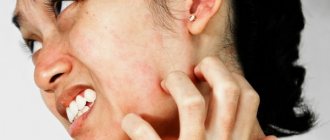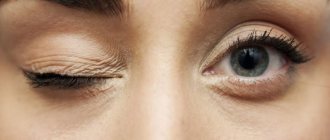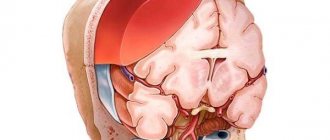Itching of the skin is a certain need to scratch the skin. The need to constantly scratch the skin can damage the top layer of the dermis. In turn, this can be complicated by pustular diseases, as a result of various bacteria entering the skin.
The cause of psychogenic itching is a mystery to doctors. Until recently, it was believed that itching occurs due to allergic reactions, dermatitis, urticaria, etc. Now they say that itching is a separate feeling, along with the sensation of cold, heat, and pressure.
The need to comb the skin arises when nerve receptors are exposed to various irritants, both internal and external. Surely, you have at least once noticed that you want to scratch your skin when you are nervous, even if your excited state is associated with pleasant events.
Unlike allergic itching, psychogenic itching does not manifest itself in any way. What should we mean by this? The skin does not change its condition: it does not peel, does not redden, and there is no rash on it. The patient has an urgent need to comb his body. Although there is no physiological need for this.
Causes of nervous dermatitis
The exact cause of this disease is unknown. It is believed that this is a special condition of the nervous system in which the nerve endings are on high alert and tell the brain that the skin is itching, although in fact there is no irritant causing itching.
Provoking factors
It is unclear what exactly initiates the inflammation process, but it has been noted that certain exposures can cause an exacerbation of neurodermatitis. Here is a list of triggers that, according to reviews, most often provoke the disease.
- Stress and negative emotions;
- Nerve damage;
- Insect bites;
- Harsh soaps and detergents;
- Some types of fabrics that are tough, scratchy or scratchy, such as wool;
- Perfumes, skin care products, cosmetics;
- Pollen and mold;
- Wool, dander, dried saliva of pets;
- Tobacco smoke;
- Dry and frosty winter air, low air humidity;
- Hot shower or bath, too long washing;
- Dry skin;
- Sweating;
- Dust or sand;
- Certain foods (most commonly eggs, dairy, wheat, soy, and nuts).
Risk factors
- Female. Women are more prone to nervous dermatitis than men.
- Young age. Neurodermatitis usually affects people under fifty years of age.
- Other skin diseases. Patients suffering from atopic dermatitis, eczema or psoriasis are more likely to develop nervous dermatitis.
- Anxiety disorder, obsessive-compulsive disorder, as well as other conditions accompanied by nervous tension are a powerful provoking factor for itching in neurodermatitis.
Frequently asked questions
Is it true that if a person has been in a state of nervous tension for a long time, he becomes more susceptible to various diseases? Can a nervous condition lead to illness?
Doctors' observations say that an initially mentally and physically healthy person is able to endure prolonged or severe stress without subsequent complications in the form of illnesses.
But if the body already has its own “weak points” in the form of a predisposition to diseases, disorders in the early (not yet identified) stages, or is weakened by a disease, then overstrain of the nervous system can trigger a whole cascade of ailments. Frequent examples of such developments are the formation of hypertension, weight loss or gain after stressful events.
Is it true that all “diseases are from nerves”?
Many diseases have causes and mechanisms of development in the form of disorders of the nervous system and psyche. But it is not correct to say that “all diseases are from nerves.” There are other causes for diseases: genetic defects, infections and poisonings, injuries, there are many disorders with an undetected etiology.
Can internal diseases cause mental disorders?
Yes. Body and psyche are connected. A significant part of diseases of internal organs can contribute to behavioral disorders and lead to mental illness.
For example, atherosclerosis and hypertension, if left untreated and progressing, will cause encephalopathy and psychoorganic syndrome (decreased memory, intelligence, emotional instability). Insufficiency of the thyroid gland leads to a decrease in intellectual capabilities.
Symptoms of nervous dermatitis
- Itching. With neurodermatitis, an itchy area appears on the skin. Unlike psoriasis or eczema, this disease has only one or two affected areas. Very rarely, neurodermatitis spreads and multiple lesions develop. The patient often scratches or rubs the affected area. No objective reason for the itching is identified. Itching intensifies during rest and at night, and stress provokes exacerbations.
- Pain. Some patients report pain. When the disease affects the scalp, it is accompanied by pain or a combination of pain and itching.
- An area of skin with raised edges is rough and dense to the touch, red or purple in color, which appears if the patient continues to scratch.
- With repeated scratching and chronic progression, the area of the pathological process thickens, the surface looks leathery, brownish, and with pronounced thickening it has a grayish tint.
- Hair loss is possible, especially noticeable if the affected area is on the scalp.
- When scratching, the epithelium is damaged, and open wounds and ulcers are formed that bleed. This may lead to infection.
- With a long course and frequent damage, scars form.
- If the integrity of the epidermis is compromised, a bacterial infection occurs. Swelling and pain occur, redness intensifies, and discharge appears, which dries out in the form of yellow crusts.
Root causes of itching
Stress can affect more than just your emotional health. The reaction to overexertion causes a wide range of physical symptoms, such as rashes, dystrophic changes in the nails, and exacerbation of chronic diseases. Rashes can appear on any part of the body.
After recovery, no traces remain - this confirms that the cause of dermatitis is nerves.
Scientists have proven that strong emotional experiences are associated with the appearance of acne or nettle fever. Areas of skin affected by dermatitis are red, inflamed, and swollen.
The spots can be the size of a pencil tip or the size of a five-ruble coin. People with allergies, neurodermatitis or sensitive, easily irritated skin should pay attention to intensive care.
Nervous dermatitis in children
Nervous dermatitis in most cases starts in childhood, its symptoms are similar to the disease in adults, and it differs in its characteristic location on the face, neck and elbow bends (see photo). Prolonged contact with allergens and the lack of treatment for atopic dermatitis lead to the baby constantly scratching areas of the skin. This pushes the allergic reaction into the background, making itching the main symptom. The difficulty is that it is impossible to explain to young children that they should not scratch the affected areas. If atopy goes away on its own with age in many people, then a disease that has reached the stage of neurodermatitis is much more difficult to interrupt, especially considering that many glucocorticoid drugs are prohibited for use in children. It is important to consult a doctor in time for treatment.
Where to treat the rash
When trying to independently determine the nature of the rash, it is easy to make a mistake. Therefore, in case of skin rashes, you should consult a dermatologist or general practitioner (pediatrician, family doctor or internist).
If there is sufficient reason to suspect the allergic origin of the rash, you should see an allergist-immunologist. By taking antihistamines on your own, you can achieve the disappearance of skin rashes, but it is worth remembering that in this case the cause of the allergy remains unknown, complex treatment is not carried out, which means that more acute allergic reactions should most likely be expected in the future.
By contacting the “Family Doctor”, you will receive qualified assistance from experienced dermatologists, allergists-immunologists, and pediatricians who will determine the cause of the rash and prescribe an effective course of treatment.
Types of nerve rash
Nervous allergy is a hypersensitive reaction in the absence of the allergen itself. The inflammatory reaction develops due to irritation of nerve endings - sensitive receptors. At the same time, the same substances as in allergies are released into the surrounding tissues and cause similar changes: itching, swelling, rash and redness. This process is involved in the formation of symptoms of skin diseases (eczema and psoriasis), as well as asthma, migraines, and vasomotor rhinitis.
Urticaria is a disease in which there is redness of the skin, itching and a characteristic rash in the form of irregularly shaped tubercles that can merge with each other. Such changes are provoked by contact with an allergen, exposure to cold, sun, pressure on the skin, as well as emotional stress. Nervous urticaria is quite rare and usually goes away once the stressor is removed. Treatment uses sedatives, as well as drugs that affect the functioning of the autonomic nervous system.
Nervous scabies, or neurogenic itch, is a condition that forms in the brain, while the skin is not affected by the disease. Itching can originate from the brain, or from peripheral nerves and receptors. Central neurogenic includes, for example, a feeling of itching in the amputated limb. The nerves may be pinched by a tight muscle or misaligned bone, causing itching. With shingles, there may also be itching in the area of the affected nerve. In the treatment of nervous scabies, glucocorticoids and antihistamines are ineffective. In case of nerve damage, local anesthetics and capsaicin (a red pepper alkaloid that affects pain receptors) help. If the cause is in the brain, medications are prescribed that act on the pain processing centers in the central nervous system. These are pregabalin and gabapentin.
Rash due to skin diseases
A rash on the body can also be a manifestation of skin diseases such as:
- acne (acne) - manifests itself in the form of papules and pustules on the skin of the forehead, cheeks, nose and chin;
- psoriasis;
- fungal diseases;
- scabies (caused by microscopic parasites).
Redness of the skin is also caused by prickly heat (for infants - a typical reaction to overheating), insect bites, etc.
Treatment of nervous dermatitis
Nervous dermatitis does not go away on its own; without medical help, external skin changes (see photo) and symptoms intensify, so it is very important to start treating this condition in adults and especially children on time. In addition to drug therapy, it is important to follow good skin care rules and adhere to a certain lifestyle; without this, medications will not be of sufficient benefit.
- You need to stop scratching and rubbing your skin. The itching can be intense, but to control symptoms and prevent flare-ups, it is important to refrain from scratching.
- A cool, damp compress will soothe the skin and reduce itching. In addition, using such a compress before applying a medicinal cream helps the medicine penetrate deeper into the dermis.
- To protect the affected areas from scratching, you can cover them with a bandage. This is especially useful if the patient tends to itch at night, during sleep, and therefore cannot control it.
- Nail care is also very important. In order to cause as little damage as possible when unknowingly scratching or at night, nails should be trimmed short and polished with a nail file.
- Take a warm bath to hydrate your skin. The water should be close to body temperature, in no case hot, and the procedure should last no longer than ten minutes. You can add oat decoction to the bath. It is better not to use soap and shower gel, especially those with dyes and fragrances. Afterwards, gently pat your skin with a towel and immediately apply a hypoallergenic moisturizer.
- Avoid triggers. Pay attention to what usually triggers a flare-up and try to avoid it. For example, use special techniques to cope with stress, do not wear irritating clothes.
Treatment with medications
Only a doctor can diagnose nervous dermatitis and select drug treatment. Therapy has several directions.
| Fight itching |
|
| Softening thickened skin | Salicylic ointment has a keratolytic effect and reduces the thickness of the affected area. |
| Treatment of infection | Antibiotics topically in the form of ointments, or orally in the form of tablets, help fight infection |
| Wound healing | Scratching leads to the appearance of wounds, which are treated in the following ways:
|
| Stress therapy | Stress and anxiety are the main triggers of neurodermatitis, so for treatment to be effective, nervous tension must be eliminated.
|









